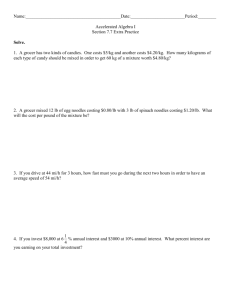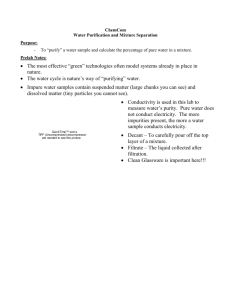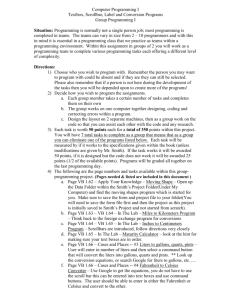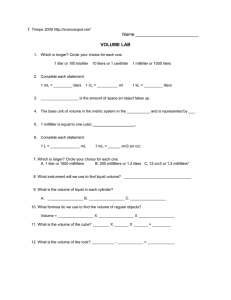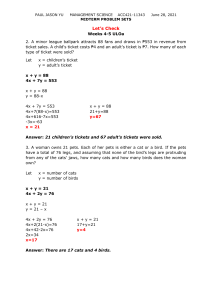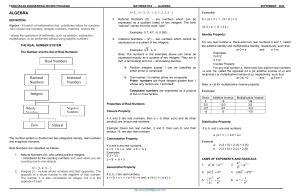The formula is to take the rate per item times the... (rate per item) X (number of items) = total
advertisement
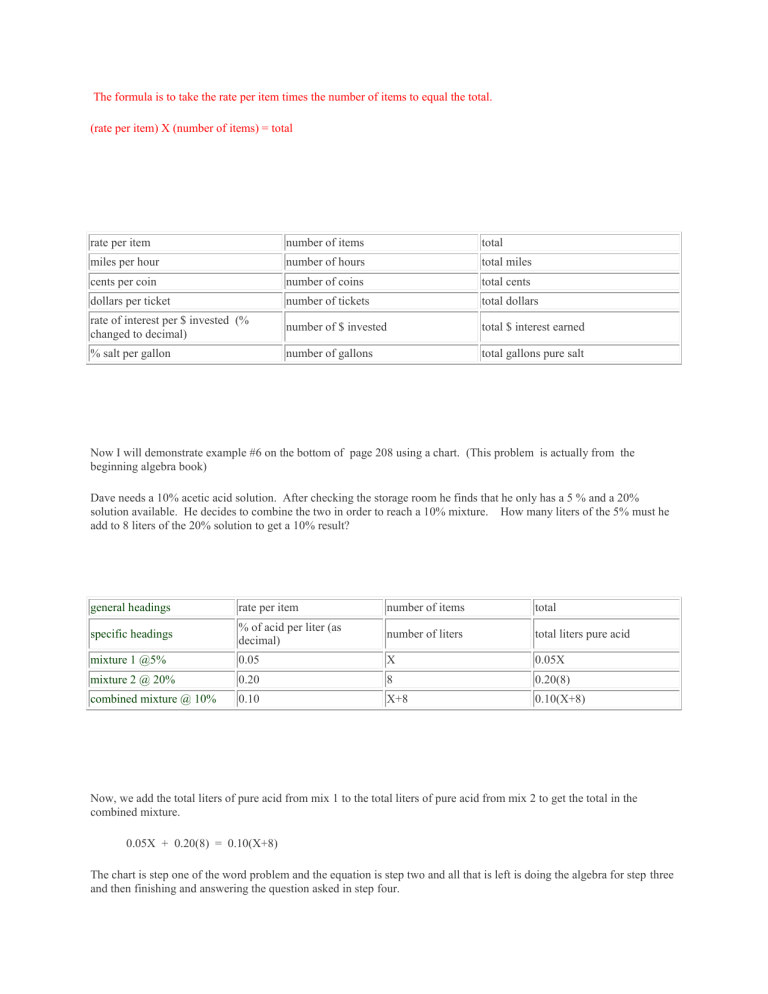
The formula is to take the rate per item times the number of items to equal the total. (rate per item) X (number of items) = total rate per item number of items total miles per hour number of hours total miles cents per coin number of coins total cents dollars per ticket number of tickets total dollars rate of interest per $ invested (% changed to decimal) number of $ invested total $ interest earned % salt per gallon number of gallons total gallons pure salt Now I will demonstrate example #6 on the bottom of page 208 using a chart. (This problem is actually from the beginning algebra book) Dave needs a 10% acetic acid solution. After checking the storage room he finds that he only has a 5 % and a 20% solution available. He decides to combine the two in order to reach a 10% mixture. How many liters of the 5% must he add to 8 liters of the 20% solution to get a 10% result? general headings rate per item number of items total specific headings % of acid per liter (as decimal) number of liters total liters pure acid mixture 1 @5% 0.05 X 0.05X mixture 2 @ 20% 0.20 8 0.20(8) combined mixture @ 10% 0.10 X+8 0.10(X+8) Now, we add the total liters of pure acid from mix 1 to the total liters of pure acid from mix 2 to get the total in the combined mixture. 0.05X + 0.20(8) = 0.10(X+8) The chart is step one of the word problem and the equation is step two and all that is left is doing the algebra for step three and then finishing and answering the question asked in step four.
